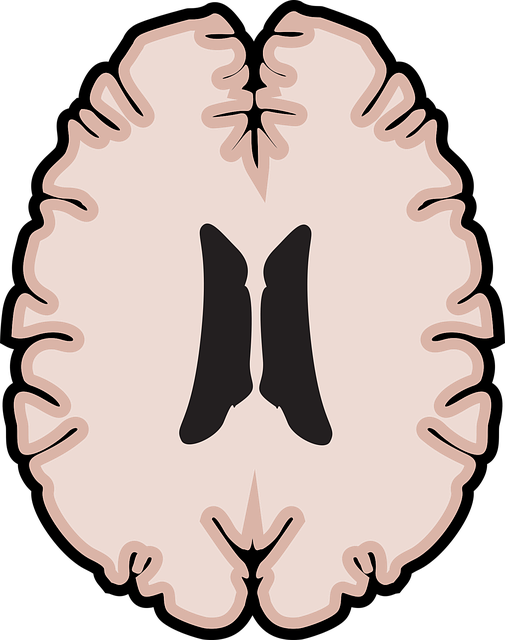The Northglenn Acceptance and Commitment Therapy (ACT) program offers a comprehensive cultural competency training approach for healthcare providers, addressing the complex interplay of culture, identity, and health. By integrating crisis intervention, community outreach, and public awareness development, this holistic strategy enhances understanding and communication with diverse patient populations, resulting in personalized and effective care. The program's focus on culturally sensitive mental healthcare improves patient experiences, outcomes, and provider resilience, fostering a more inclusive and sustainable healthcare environment.
Cultural competency in healthcare is no longer an option—it’s essential. This comprehensive guide explores the critical role of training for providers, using the Northglenn Acceptance and Commitment Therapy (ACT) approach as a model. We delve into why cultural competency is vital for quality care, examine key components of effective training programs, and discuss strategies for implementing and measuring impactful education that fosters understanding and connection in diverse patient populations.
- Understanding Cultural Competency in Healthcare: The Northglenn Approach
- Why is Cultural Competency Training Essential for Healthcare Providers?
- Key Components of a Comprehensive Training Program
- Implementing and Measuring the Impact of Cultural Competency Education
Understanding Cultural Competency in Healthcare: The Northglenn Approach

Cultural competency is a vital aspect of modern healthcare, reflecting an understanding and appreciation for the diverse cultural backgrounds and beliefs of patients. It involves creating an inclusive environment where all individuals feel respected, heard, and valued, leading to improved health outcomes. The Northglenn Acceptance and Commitment Therapy (ACT) program takes a unique approach to addressing this issue.
In their comprehensive training, Northglenn offers a holistic perspective on cultural competency, integrating principles from various disciplines such as Crisis Intervention Guidance, Community Outreach Program Implementation, and Public Awareness Campaigns Development. This multi-faceted strategy ensures that healthcare providers gain insights into the complex interplay of culture, identity, and health, enabling them to deliver more personalized and effective care. By fostering an environment of understanding and empathy, Northglenn’s approach equips professionals to navigate cultural differences, ultimately enhancing patient experiences and outcomes.
Why is Cultural Competency Training Essential for Healthcare Providers?

Cultural competency training is essential for healthcare providers because it bridges the gap between diverse patient populations and the care they receive. In a society as diverse as ours, patients come from various ethnic, cultural, and socioeconomic backgrounds, each bringing unique perspectives, beliefs, and communication styles. Healthcare providers who lack cultural competence may struggle to understand these nuances, leading to miscommunication, mistrust, and ultimately, suboptimal patient outcomes.
For instance, Northglenn Acceptance and Commitment Therapy (ACT) programs emphasize the importance of cultural competency in mental health education. These programs aim to design effective mental wellness podcast series production that cater to diverse audiences, ensuring that all patients can access and benefit from evidence-based treatments. By integrating cultural competency into their training, healthcare providers gain the skills to deliver quality care, improve patient satisfaction, and promote better mental health outcomes for everyone, regardless of their background.
Key Components of a Comprehensive Training Program

A comprehensive Healthcare Provider Cultural Competency Training program should encompass several key components to effectively prepare professionals for diverse patient populations in Northglenn. Firstly, it must include cultural awareness training that delves into unconscious biases and systemic barriers, fostering an understanding of how these influences impact healthcare delivery. This involves exploring various cultural contexts, traditions, and beliefs to enhance empathy and facilitate effective communication.
Secondly, the program should integrate evidence-based practices like Acceptance and Commitment Therapy (ACT) techniques for inner strength development. By teaching providers to recognize and manage their own emotional responses, ACT empowers them to create a supportive environment, which can significantly improve patient outcomes. Additionally, incorporating mental wellness strategies from the Mental Wellness Podcast Series Production can equip healthcare providers with tools to support not only patients but also themselves in maintaining resilience and coping with the demands of their profession.
Implementing and Measuring the Impact of Cultural Competency Education

Implementing cultural competency training is a crucial step towards enhancing mental healthcare services, especially in diverse communities. The Northglenn Acceptance and Commitment Therapy (ACT) program, for instance, has recognized this need and incorporated it into their approach. By educating providers on Cultural Sensitivity in Mental Healthcare Practice, they aim to improve patient outcomes and build stronger relationships within these communities.
Measuring the impact of such initiatives is essential to ensure effectiveness. This can involve assessing improvements in provider attitudes, knowledge, and behaviors related to cultural competency. Regular feedback from participants and follow-up evaluations post-training can provide valuable insights into the program’s success. For example, tracking burnout prevention strategies within these training programs has shown promising results in reducing mental health professionals’ stress levels, thus fostering a more sustainable and compassionate healthcare environment.
Cultural competency training, as exemplified by the Northglenn Approach, is not just a program; it’s a necessary evolution in healthcare. By equipping providers with the skills to understand and address cultural nuances, we enhance patient care, promote trust, and foster inclusive environments. The benefits are clear: improved patient outcomes, increased satisfaction, and stronger communities. As we move forward, adopting comprehensive training models like Northglenn Acceptance and Commitment Therapy (ACT) can revolutionize healthcare delivery, ensuring every patient receives respect, understanding, and the best possible care.










